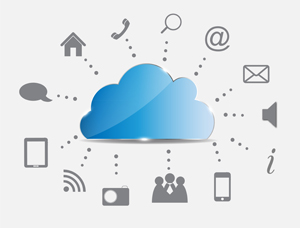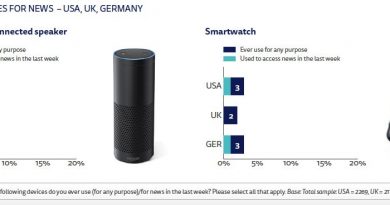Looking through the Prism Glass – Reflections on the Surveillance Scandal
Posted by Dr Arne Hintz
Since the Guardian and the Washington Post started, on June 6th, to release secret information on electronic mass surveillance by the US government, the surveillance scandal has been at the top of the news agenda and has been widely debated. A core piece of the revelations provided by whistleblower Edward Snowden concerned the PRISM programme that, according to the report by Guardian journalists Glenn Greenwald and Ewen MacAskill, allows for blanket surveillance of Internet communication. Exactly how communication traffic is accessed remains unclear – the leaks suggest that the US government has direct access to the servers of Google, Facebook, etc., while the companies claim they only respond to specific data requests – but the programme as such was confirmed by the NSA. The extent to which it allows to collect, store and analyse data amounts to – in the words of John Perry Barlow, co-founder of the Electronic Frontier Foundation – “monitoring the communication of the human race”.
The leak has provided us with crucial information regarding our daily communication. Yet it also offers us a lens to understand broader changes in the field of journalism, media and communication, as well as challenges to democratic practices. Just like the earlier WikiLeaks revelations highlighted wider questions of whistleblowing and internet freedoms, amongst others (see the new book “Beyond WikiLeaks”), PRISM points us to a broader set of issues that deserve attention.
Who is targeted by online surveillance?
Following the revelations, the US government quickly tried to reassure its own population that PRISM only focuses on non-US citizens outside the US – i.e., the rest of the world. This has not calmed the concerns of that very ‘rest’. European politicians have raised questions regarding the breach of EU data protection regulations. Yet it has also emerged that that several governments (incl. the UK) have had access to data collected by PRISM, and that the EU had dropped legislation just last year that would have protected EU citizens from PRISM. The degree of online surveillance will hardly come as a surprise for most European politicians, and of course EU countries have implemented their own online surveillance mechanisms following the European Data Retention Directive.
Two well-established arguments have been used to appease citizens and diffuse concerns: law-abiding citizens have nothing to fear, and online spying only targets terrorists. Both have repeatedly been proven wrong. Regarding the first, data analysis in times of big data draws connections that surpass our own direct activities (see Ian Brown’s piece in the Guardian). As for the second, the infamous FISA (Foreign Intelligence Surveillance Act) on which PRISM is based explicitly refers to all forms of citizen activity and communication that relate to US policy, which may include, for example, civil society campaigns and protests (as former Microsoft privacy adviser Caspar Bowden explained recently at the Open Rights Group convention).
The role of commercial services
PRISM targets cloud and social media services provided by the US Internet giants such as Google, Facebook and Microsoft. It benefits from the fact that most of our online communication is now stored on (and moves through) the servers of these companies in the US. This highlights the increasing role that commercial online services play in surveillance efforts, and it draws attention to the problematic fact that we tend to trust a few large corporations with our (often most personal) communication. Few of these companies have been hesitant to collaborate with the NSA (Twitter appears to be an exception), most have been forthcoming, many of them above and beyond what was legally required.
This reflects earlier events around the WikiLeaks releases when companies like PayPal and Amazon stopped the services they had previously provided for WikiLeaks, and when social media companies were forced by the US government to hand over the user data of WikiLeaks followers. State surveillance is increasingly privatized, and so is the enforcement of Internet policy ad Internet controls.
Secrecy and democracy
Governments have been quick to assert that all has taken place within the law and with sufficient oversight. But what law and what oversight? PRISM and FISA are based on secret orders and secret processes. The sovereign – the people – is unable to control them and is kept from even knowing about them. Few parliamentarians in the US and elsewhere knew about the exact details of the programme (and those who did were barred from talking about it). FISA provides a secret court, the Foreign Intelligence Surveillance Court (FISC), but this court has little authority to reject governmental requests (see the analysis by EFF and others) and has hardly ever done so. Institutional oversight, judicial process and parliamentary control thus become a farce.
Arguably, the broader (and potentially more serious) impact of FISA and PRISM is therefore the weakening of the system of democratic institutions, and the transformation of parts of it into an unaccountable and undemocratic set of secret rules.
Journalism
The revelations were a great example for investigative journalism and for the important role that this type of journalism plays. The stories in the Guardian and the Washington Post revealed information that could hardly be more significant as it concerns the lives of people worldwide. However the events around the leak also showed us some of the more problematic media practices. Some newspapers quickly changed the focus from the message to the messenger and published derogatory articles on whistleblower Edward Snowden and journalist Glenn Greenwald, applying a classic strategy of diverting from the actual scandal by focusing on individuals, a strategy which had already worked well with Julian Assange and Bradley Manning. Or they just pretended that the story was all old hat and that we have nothing to worry about. This kind of reporting underlined wide-spread concerns with the media coverage of government wrongdoings, concerns that were shared by Edward Snowden himself: He declared he did not contact the New York Times for publishing the information because the NYT had postponed the publication of similar leaks back in 2003/04 for a year until after the US election.
Whistleblowing
Finally, the PRISM revelations have demonstrated the importance of whistleblowers. As the trial against Bradley Manning is taking place in the US and Julian Assange continues to be held captive in the Embassy of Ecuador by the UK government, these leaks remind us that it often takes people like them to provide us with crucial knowledge about our daily activities, our governments, and our democracy.
PRISM was revealed a few days after Frank La Rue, the United Nations Special Rapporteur on Freedom of Expression and Opinion, delivered a landmark report on state surveillance and freedom of expression in which he highlighted that the right to privacy is an essential requirement for the realization of the right to freedom of expression. PRISM touches the core of our most fundamental rights and daily processes, and it affects the nature of our democracy. The revelations allow us to see and, hopefully, address these challenges.


